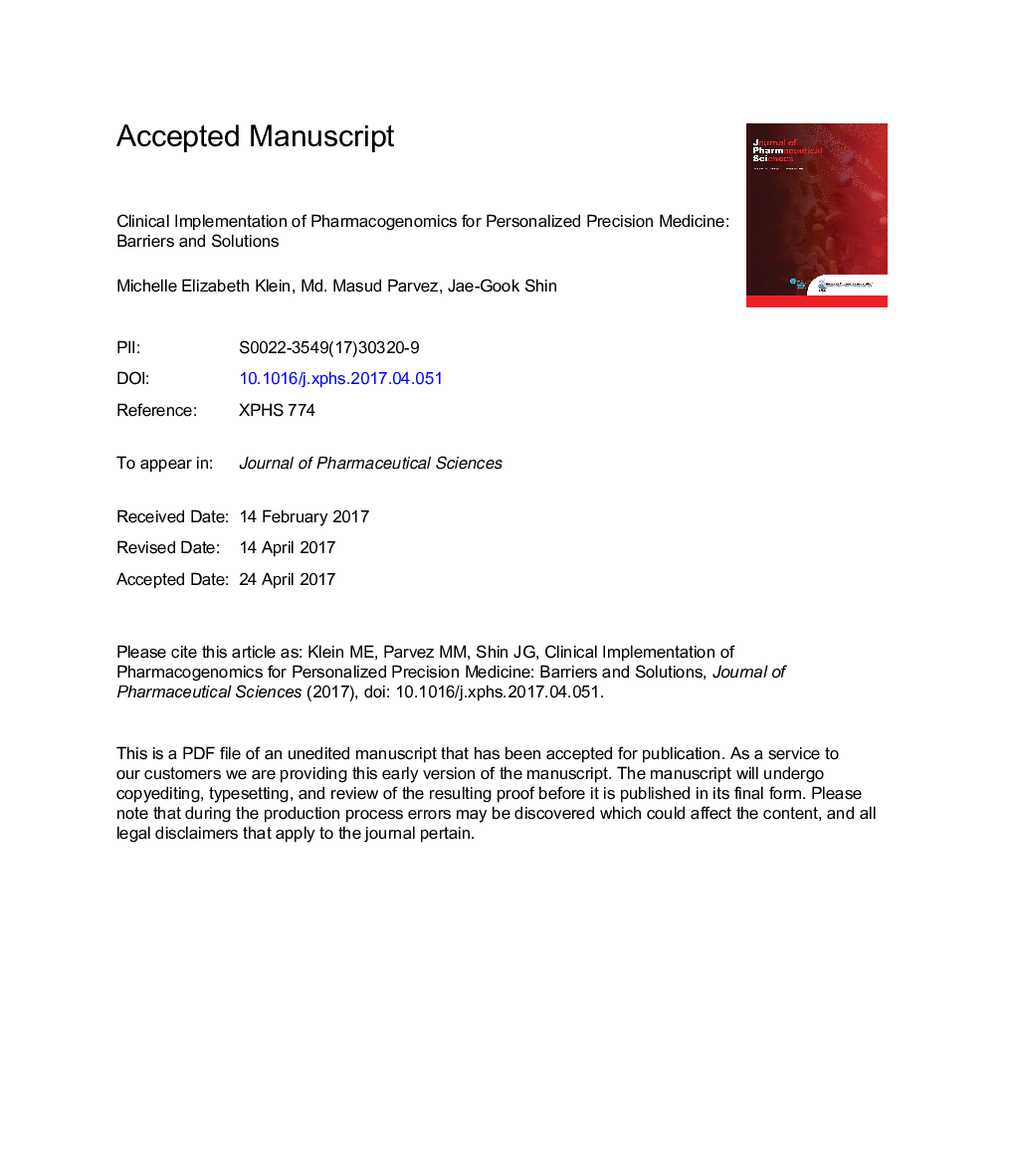| Article ID | Journal | Published Year | Pages | File Type |
|---|---|---|---|---|
| 8513919 | Journal of Pharmaceutical Sciences | 2017 | 44 Pages |
Abstract
Clinical implementation of pharmacogenomics (PGx) leads to personalized medicine, which improves the efficacy, safety, and cost-effectiveness of treatments. Although PGx-based research has been conducted for more than a decade, several barriers have slowed down its widespread implementation in clinical practice. Globally, there is an imbalance in programs and solutions required to empower the clinical implementation of PGx between countries. Therefore, we aimed to review these issues comprehensively, determine the major barriers, and find the best solutions. Through an extensive review of ongoing clinical implementation programs, scientific, educational, ethical, legal, and social issues, information technology, and reimbursement were identified as the key barriers. The pace of global implementation of genomic medicine coincided with the resource limitations of each country. The key solutions identified for the earlier mentioned barriers are as follows: building of secure and suitable information technology infrastructure with integrated clinical decision support systems along with increasing PGx evidence, more regulations, reimbursement strategies for stakeholder's acceptance, incorporation of PGx education in all institutions and clinics, and PGx promotion to all health care professionals and patients. In conclusion, this review will be helpful for the better understanding of common barriers and solutions pertaining to the clinical application of PGx.
Related Topics
Health Sciences
Pharmacology, Toxicology and Pharmaceutical Science
Drug Discovery
Authors
Michelle E. Klein, Md Masud Parvez, Jae-Gook Shin,
